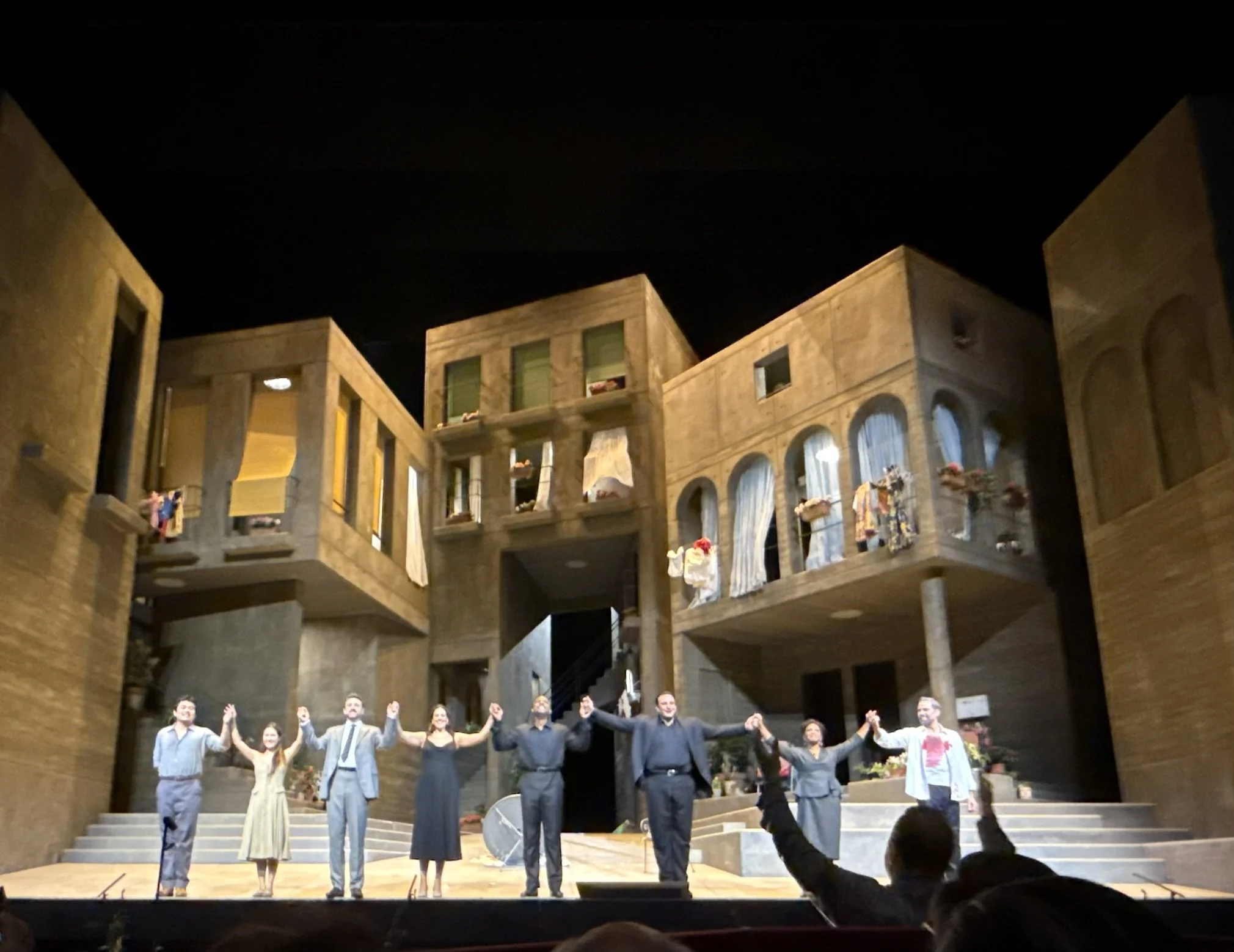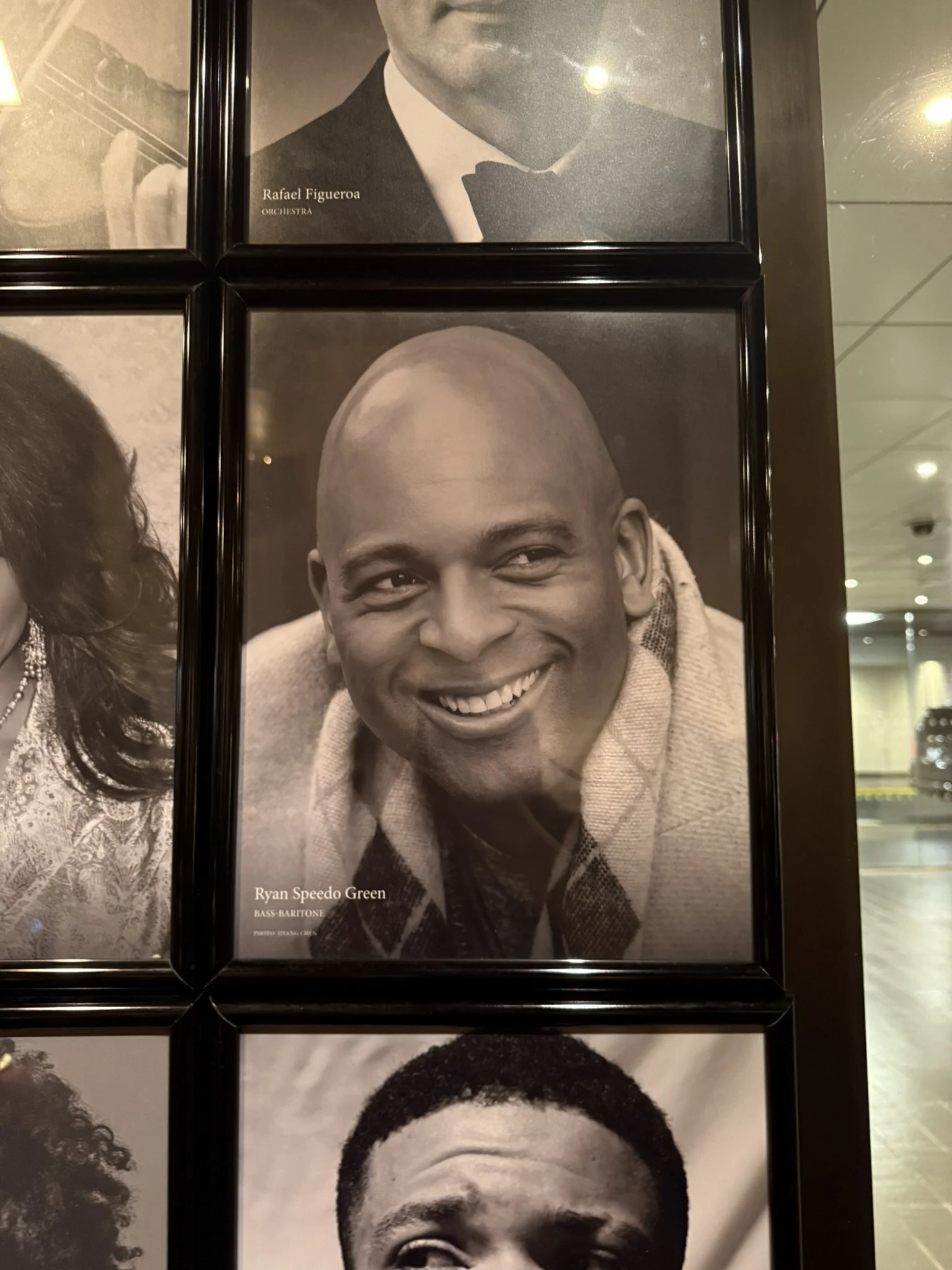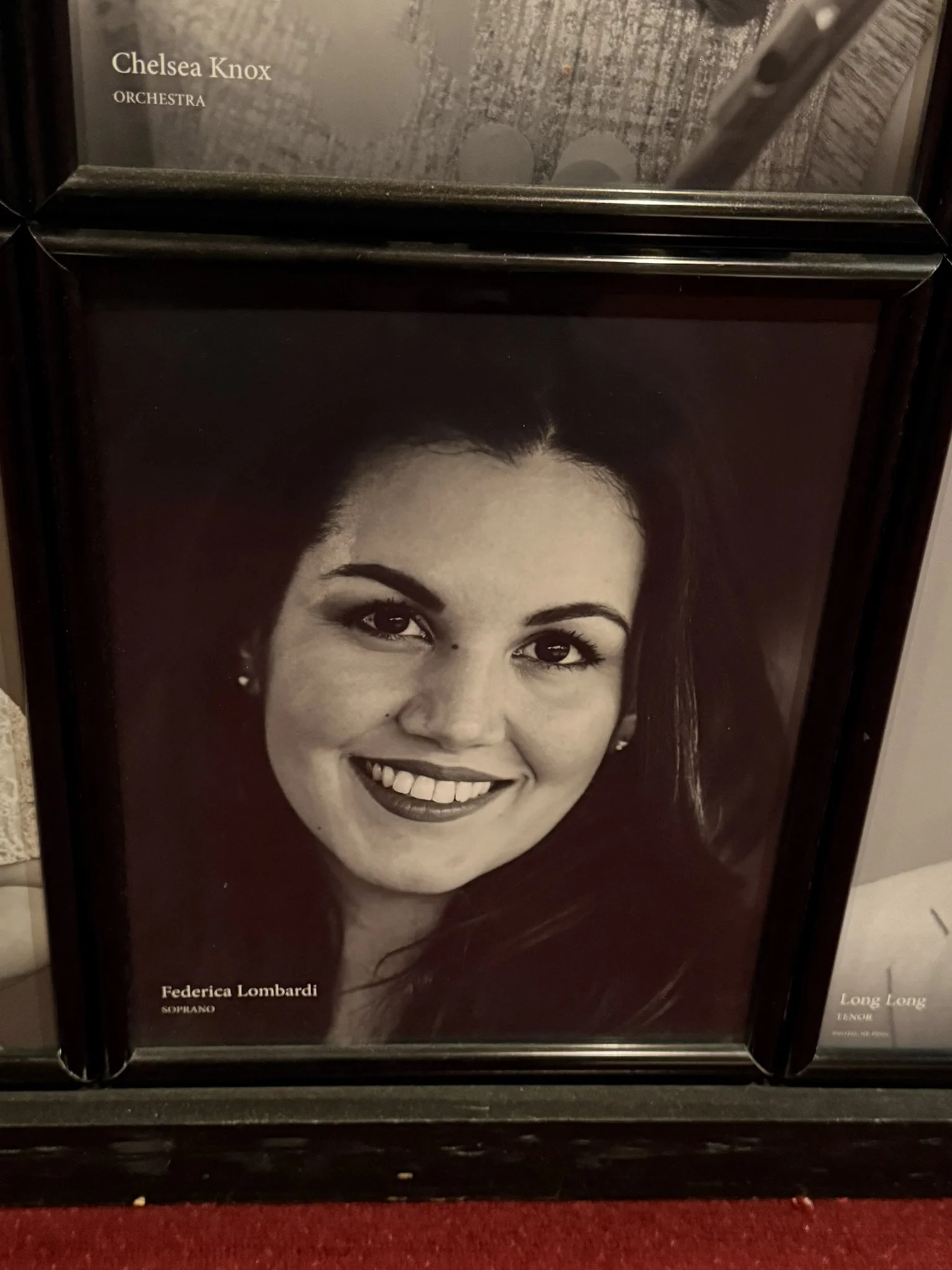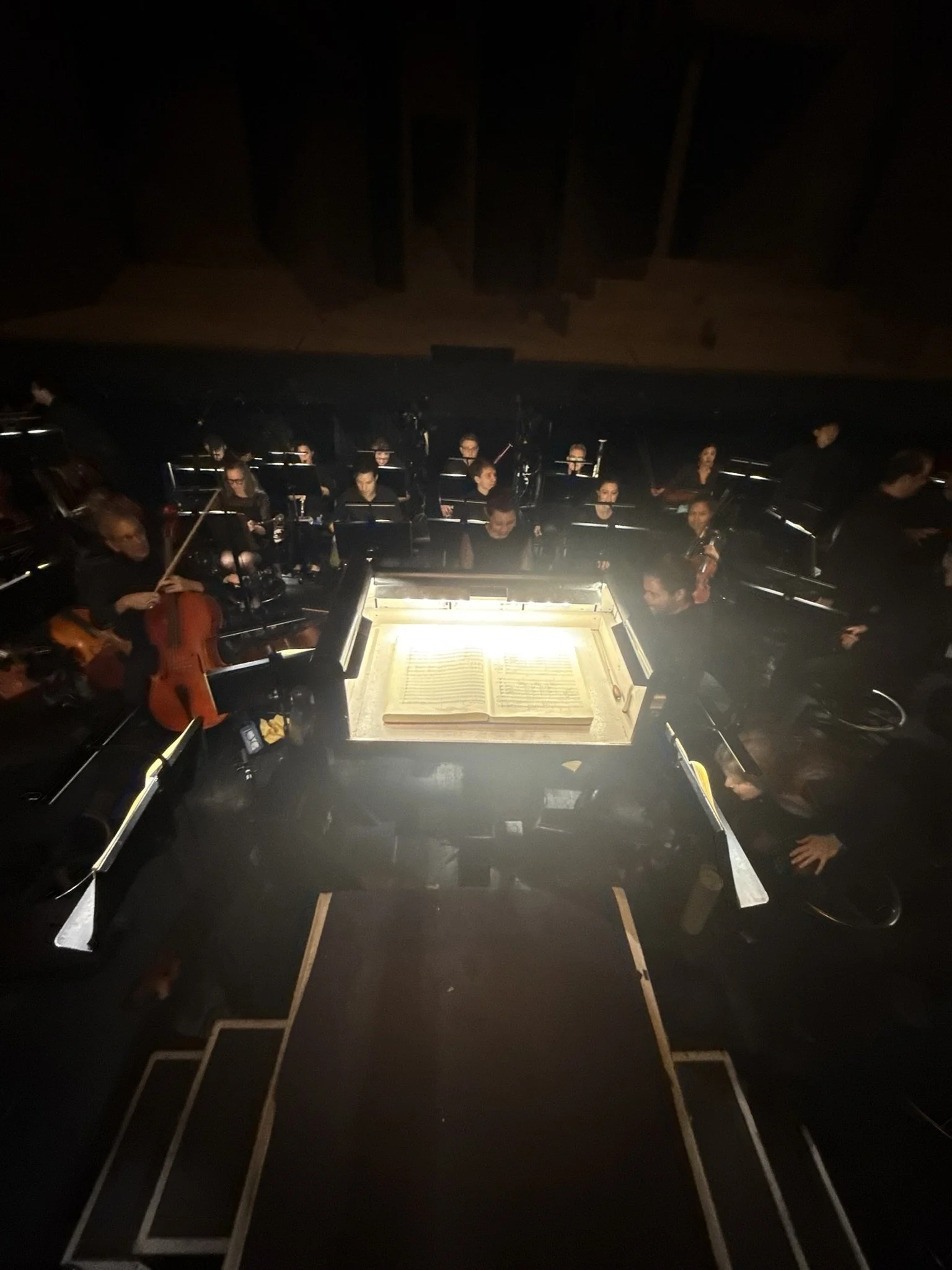On September 24, the 1st. Don Giovanni at the Met this season. It was premiered in Prague in 1787. Emotion permeates the music so that even a sigh or a sudden shift of intellect becomes music. Mozart’s music is built from simple rhythms, harmonies, and the main and sub melodies, through which the orchestra brings out the tangled patterns of human relationships. Especially in the first half, drama and singing are outstanding, yet the scenes flow into each other as if it were a film-like experience, with no stagnation; song leads into speech, speech back into song. In the pit, the Met Orchestra's vibrato is carefully controlled, its range of emotion changing according to character and situation. The tempo was carefully considered, the basses and timpani light yet resonant, while the restrained vibrato makes the rhythm feel more vivid. Onto this, the richly varied ensemble layers itself, and within this unbroken current, human comedy unfolds scene after scene. The stage proceeds on the very edge of the boundary between acting and singing, giving the illusion that these events are happening right now without losing elegance or refinement.
The reckless nobleman Don Giovanni and his servant Leporello. The proud and alluring Donna Anna and her faithful fiancé Ottavio. Even the young village couple—all explode with their individuality, until at last the villain is cast down to hell.
The story begins with Adam Plachetka as Leporello singing “day and night I work,” pouring out his frustrations at his capricious master. He spits venom at being worked, with a menace like a real gangster. Immediately after, Donna Anna (Federica Lombardi) tries to stop Giovanni, who is rushing to leave. After kissing, they quarrel. Her father arrives, and Giovanni shoots him dead. Anna, consumed by grief and fury, swears vengeance. Her glamour and power as a great beauty embody the turmoil of anger and sorrow that follows the sudden incident after an amorous encounter.
Ben Bliss, as Ottavio, enters as the very image of sincerity and refinement, speaking gently to Anna. That contrast is luxurious. The young villagers Zerlina (Hyesang) and Masetto (William), radiate the energy of youth enjoying life to the fullest. They are taut, ready to burst at the slightest touch, vividly conveying the sense of “living now, loving now.” Yet when Giovanni tempts them, their desires waver with the same youthful force. Masetto’s bluff bravado, only to be beaten down by Giovanni, was portrayed with striking realism.
Anna’s father, Adam Palka, is killed at once by Giovanni’s gun, but in the end, he returns from hell to drag him down. His voice, speaking as if from another world, was powerful and majestic, resonating through the entire hall. It brought to mind Georg Zeppenfeld.
Speedo Green, as Don Giovanni, let his dedication and care shine through in both singing and acting as scellerato brilliantly, displaying his outrageous. In Act II, when roles were exchanged, his voice blended with Adam Plachetka’s so that they seemed like brothers. When the dead father appeared and they sang the trio, the harmony deepened even further.
As the abandoned woman, Elvira, Janai Brugger pursued, reproached, and cursed Giovanni, while still loving him. She sang this contradiction with honesty and passion, giving the most realistic portrayal of all.
And in Ivo van Hove’s staging, the effects were simple and ordinary, yet carried clear meaning, freeing the audience from unnecessary ornament and drawing their focus onto the music and the cast’s expression. Out of this flow, the orchestra, attentive to tempo, used restrained vibrato to sharpen the rhythm, opening space for a rich ensemble to unfold. The roles became inseparable from the singers’ personalities. Instead of merely repeating the forms inherited from Mozart, the performance came alive with interpretations that made the music’s message feel individual and fresh. Rather than spotlighting star singers, conductor Yannick brought out the most extraordinary possibilities within the work itself that Mozart’s music spoke at the Met.
Wednesday, September 24, 2025 7:30–11:00pm at The Met Opera, New York
Season Premiere
Conductor, Yannick Nézet-Séguin
Leporello, Adam Plachetka
Donna Anna, Federica Lombardi
Don Giovanni, Ryan Speedo Green*
Commendatore, Adam Palka DEBUT
Don Ottavio, Ben Bliss*
Donna Elvira, Janai Brugger
Zerlina, Hera Hyesang Park*
Masetto, William Guanbo Su
Continuo; Fortepiano, Howard Watkins*
Cello, Kari Jane Docter
Mandolin Solo, Nathan Huvard
*Graduate of the Lindemann Young Artist Development Program
Congrats for the role debut.
Enlightning Horn sounded bright and sharp, take us to the time so fresh.
Seductive actress, more than Opera Singer
Mozart Sory tellers a the pit
音楽は語る。メットのドンジョバンニ。
9月24日、メットで今シーズン1回目のドンジョバンニを見た。1787年にプラハで初演されたモーツアルトの作品だ。情緒が浸透し、溜息のような一瞬の感情と知性も音楽となる。モーツアルトの音楽構造は、単純なリズムとハーモニーと主と副旋律で、オーケストラは入り乱れる人間模様を浮き彫りにしていく。特に前半は、ドラマと歌がはっきり分かれているのに、まるで映画の様にシーンが繋がっていた。流れによどみがなく、歌から話、話から歌へ。ビブラートはコントロールされ感情の振れ幅を役と場面に応じて表現を変えていく。テンポの運びに配慮があり、バスやティンパニは軽く、しかししっかりと響き、抑制されたビブラートがリズムをより生き生きと感じさせる。そこに個性豊かなアンサンブルが淀みない流れの中で人間喜劇を次々と展開し、歌と演技の境界で舞台は進み、まるでいま事件が起こっているかのような錯覚を与えているのに優雅や気品を失わない。
めちゃぶりしかしない悪党伯爵ドン・ジョヴァンニと従者レポレッロ。気高い艶女ドンナ・アンナと、その誠実な婚約者オッターヴィオ。村の若いカップルも含め、全員がそれぞれの個性を爆発させ、最後には悪人が地獄に落とされる。
レポレッロを歌うアダム・プラチェトカは「昼も夜も働いて」と歌い、気まぐれな主人への不満を吐き出すところから始まる。こき使われるのはもう嫌だと毒を吐き、本物のヤクザのような凄みを漂わせる。直後、ドンナ・アンナ(フィデリカ・ロンバルディ)が急いで立ち去ろうとするジョヴァンニを引き止め、唇を交わしたのち口論となる。そこに父親が現れ、ジョヴァンニに銃で撃たれ命を落とす。娘アンナは怒りと悲しみに燃え、復讐を猛然と誓う。グラマーでいい女の艶と迫力が、情事の後の突然の事件で怒りと悲しみの葛藤を演じる。
オッターヴィオを歌うベン・ブリスは、これ以上なく誠実で気品に溢れた青年として登場し、アンナへ優しく語りかける。そのコントラストが贅沢だ。村の若者ツェルリーナ(ヒーサン)とマゼット(ウィリアム)は、人生を謳歌するエネルギー全開の若者そのもの。お互いに押せば弾けるような張りがあり、「今を生き、愛し合っている」様子が生き生きと伝わる。だがジョヴァンニに誘惑され、欲望に揺れる姿もまた若さ全開で、マゼットが虚勢を張ってジョヴァンニに叩きのめされる場面も実にリアルだった。
アンナの父のアダムパルカはすぐにジョヴァンニに撃ち殺されるが、最後には地獄から彼を迎えに戻ってくる。その声は、別世界から語りかけるように、力強く威厳に満ち、ホール全体に共鳴する。Georg Zeppenfeldを思い出した。
ドン・ジョヴァンニ役のスピード・グリーンは、その歌唱と演技に献身と丁寧さがにじみ出ていて、とんでもない悪党ぶりを鮮やかに発揮していた。第2幕で役が入れ替わると、アダム・プラチェトカと声の質が似ていて、まるで兄弟のように感じられた。最後に死んだ父が現れて三重唱となると、さらに調和が深まっていった。
捨てられた女エルヴィーラを演じたシャナ・シャナイバーガーは、ジョバンニを追い、責め、呪いながらも、なお彼を愛していた。その矛盾を正直に、情熱的に歌い、この中で最もリアルな人物像を描き出した。
イヴォ・ヴァン・ホーヴェの演出は、効果はシンプルかつ平凡でありながら明確な意味を持ち、聴衆を不要な装飾から解放し、音楽と歌手の表現に焦点を集めた。その流れの中で、テンポに細心の注意を払ったオーケストラは、抑制されたビブラートでリズムを明確にすることで生まれるスペースに、豊かなアンサンブルが繰り広げられ、演じる役が歌手の個性と一体になり、モーツアルトに受け継がれてきた型ではなく、その音楽のメッセージを個性豊かで新鮮に感じさせる解釈で命を吹き込んだ。スター歌手を前面に押し出すのではなく、作品に含まれる可能性を最大に引き出す音楽監督ヤニックの手腕は、讃えざるをえない。メットでは、モーツァルトの音楽そのものが語っていた。





